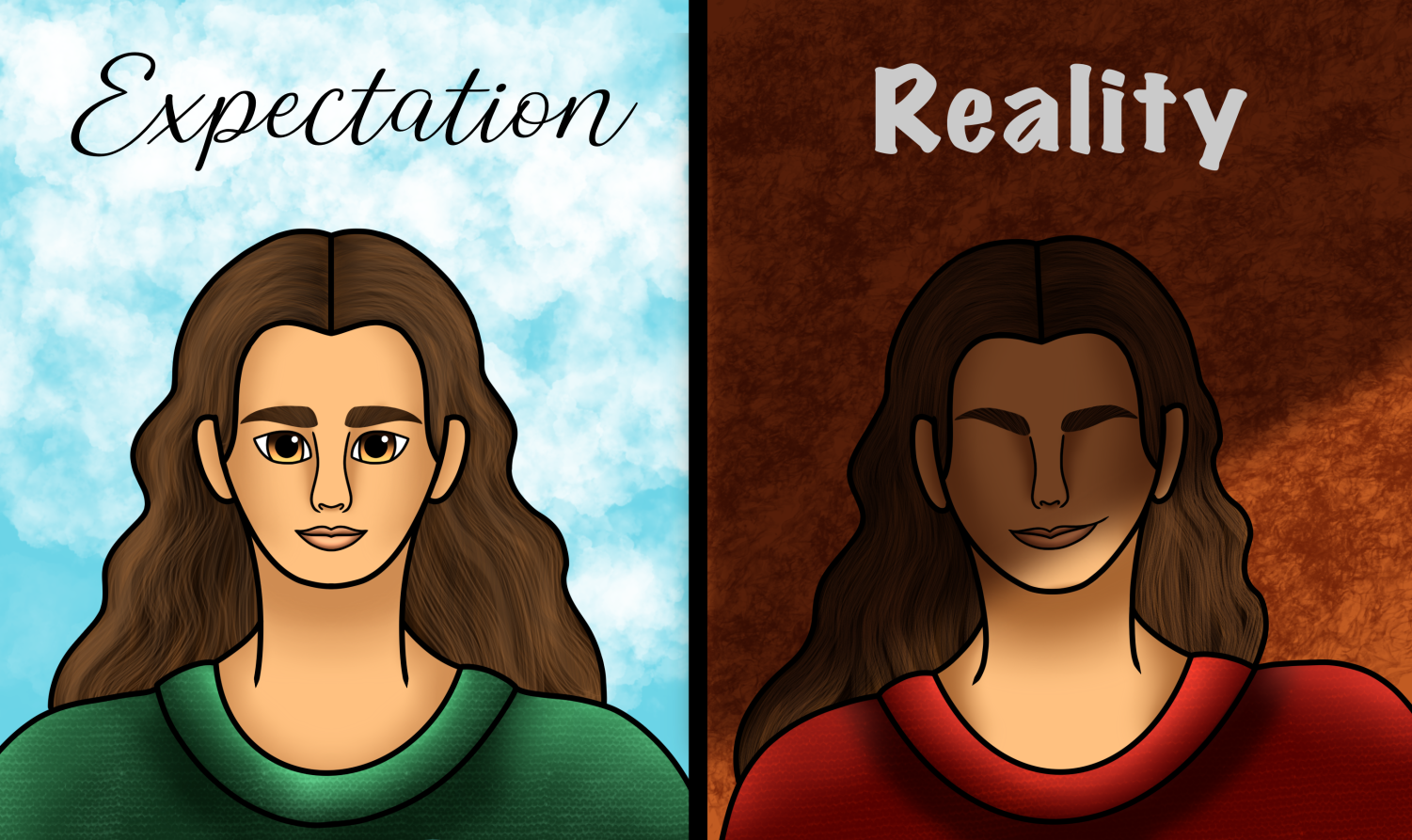Swiping right might be wrong
How online dating impacts self-image, commitment, sincerity
February 16, 2023

Download, swipe, delete, repeat.
This cycle is one that I and many others fall prey to as we enter into the world of dating. While your parents may have cute stories of meeting at a bar or through mutual friends, our generation seems to connect best by swiping right.
According to a study conducted by Pew Research Center, about half of adults under 30 have used dating sites or apps, with 79% of them specifically having used Tinder. In this digital era where we have stopped looking up from our screens, we are increasingly dependent on algorithms to couple us up instead of our own intuition.
While online dating makes searching for someone simpler, it can also damage our self-image, endanger the value of sincerity and trust in relationships, and foster a communal fear of commitment.
Before even getting to swiping, you must fabricate the ideal profile to make the best first impression. It is a strenuous process of choosing your best photos, writing witty responses to prompts and adding information that best represents who you are, all of which will be judged in 10 seconds or less by those swiping on you.
An online persona is never perfect, and it is much easier for us to showcase our best moments than our ugly truths. This persona only gives us the chance to choose someone based on shallow visual cues and not because of who they truly are.
Once a “perfect” profile is created, the act of swiping offers the opportunity to meet multiple people at once. While the freedom of options is exciting, it can also motivate someone to balance multiple surface-level connections instead of putting energy into a single, deeper one.
This never-ending swiping inherently drives the idea of endless choices. In reality, there is not truly a limitless pool of people to sort through when looking for “the one.” Instead, we begin to become addicted to the dopamine hit that comes every time we have the chance to match with someone. This can lead to us spending an unhealthy amount of time swiping in anticipation of another even better match.
This dating app addiction can be so damaging, especially to those who are single and may struggle to pursue a genuine and deep relationship with only one person. It can also cause problems for people already in relationships – infidelity can be committed with as few as a handful of taps on a screen.
This habit was coined by psychologist B.F. Skinner in the 1950s as “intermittent reinforcement.” He observed that lab mice who received randomized rewards when they pulled a lever – either nothing, a small treat or a large treat – were more likely to keep pulling the lever than the mice who received the same reward every time. Similarly, we are subjects of intermittent reinforcement when swiping left or right, matching or not.
Once you have a match worth meeting, it can be nerve wracking to go on a first date with someone you do not know in the real world. When I was younger, my mom taught me never to talk to strangers online, and now those rules have been thrown out the window as my world transitions to an increasingly virtual one.
In my time using dating apps, I have been on dates where I either felt unsafe or uncomfortable. Even when pulling out all the stops – meeting up separately, going to a public spot during the day, having some form of verification like a FaceTime or video before seeing each other – there is always the threat of your match’s online persona not aligning with their true selves. While many apps require verification, that does not mean safety is certain.
Overall, there is a bigger picture to why our generation seems to find comfort in online dating. There is a bit in all of us that longs for connection and acceptance, which a match can momentarily supply. However, it is not long before those feelings clear like fog to reveal what was there before: a loneliness built by the disconnect that technology has simultaneously stripped of us and birthed in itself.
No longer is there a longing to build an emotional attachment or to have a healthy partnership, but instead there is a need for instant gratification, which has been ingrained in us not only through the process of online dating but also through likes and shares on social media, instant delivery of Amazon orders and constant advertising of the next best thing being thrown in our faces.
As consumers, online dating is just one more way that we are falling prey to a larger system of quantity over quality. I believe it is our responsibility – and more so our right – to consciously utilize the tools offered to us with our wellbeing, safety and needs in mind.
In its best form, online dating can be a useful tool for meeting new people and expanding our social circle. At its worst, it can damage how we perceive ourselves, the opportunity for lasting commitment and, most of all, the value we put into the relationships we form.

























































































